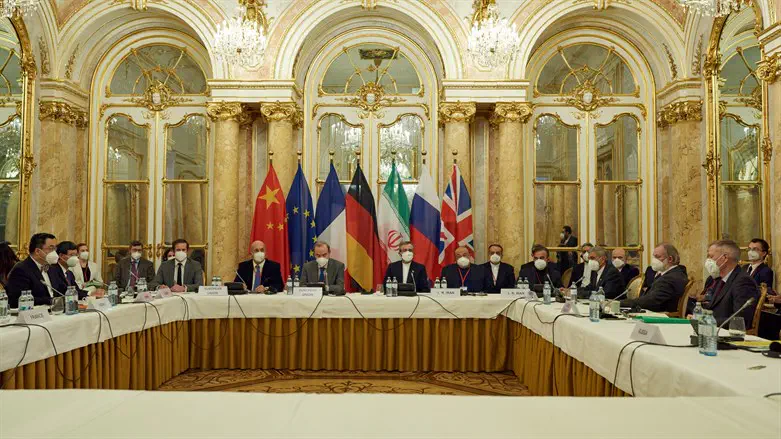
European officials on Friday voiced dismay over the demands of Iran's new, hardline administration in nuclear talks with the West, Reuters reports.
The comments came as indirect US-Iranian talks on saving the 2015 Iran nuclear deal broke off until next week.
The seventh round of talks in Vienna is the first with delegates sent by Iran's new President Ebrahim Raisi, whose election in June caused a five-month hiatus in the talks.
Diplomats said on Friday the Iranian delegation had proposed sweeping changes to a text that was painstakingly negotiated in previous rounds and that European officials had said was 70-80% finished.
"Over five months ago, Iran interrupted negotiations. Since then, Iran has fast-forwarded its nuclear program. This week, it has back-tracked on diplomatic progress made," senior officials from France, Britain and Germany said in a statement quoted by Reuters, adding that Iran was demanding "major changes" to the text.
It is "unclear how these new gaps can be closed in a realistic time frame", they added.
The three European powers expressed "disappointment and concern" at Iran's demands, some of which they said were incompatible with the deal's terms or went beyond them.
In response, the top Iranian negotiator said that the European sides can propose their own drafts for discussion.
"There is no problem if the Europeans also provide drafts, and they can be discussed, but they must be based on principles approved by both sides," Ali Bagheri Kani, a deputy foreign minister, said, according to Reuters.
Iran has gradually scaled back its compliance with the 2015 nuclear deal it signed with world powers in response to former US President Donald Trump’s withdrawal from the agreement in May of 2018.
The indirect talks with the administration of Joe Biden resumed this week in Vienna.
Iran has repeatedly demanded that the US lift sanctions imposed on Iran and also reassure Iran it will not abandon the deal again as a precondition for its returning to compliance with the deal.
US officials have said that while they prefer the diplomatic route to reach an agreement with Iran, there are other options on the table should that fail.
The US envoy on Iran, Robert Malley, said last week that Washington will not "sit idly" on Iran if it drags its feet on returning to the nuclear deal.
Meanwhile, General Kenneth McKenzie, the top US commander in the Middle East, said that Iran is “very close” to a nuclear bomb and his forces stand ready with a potential military option should talks with the Islamic Republic fail.
(Arutz Sheva’s North American desk is keeping you updated until the start of Shabbat in New York. The time posted automatically on all Arutz Sheva articles, however, is Israeli time.)